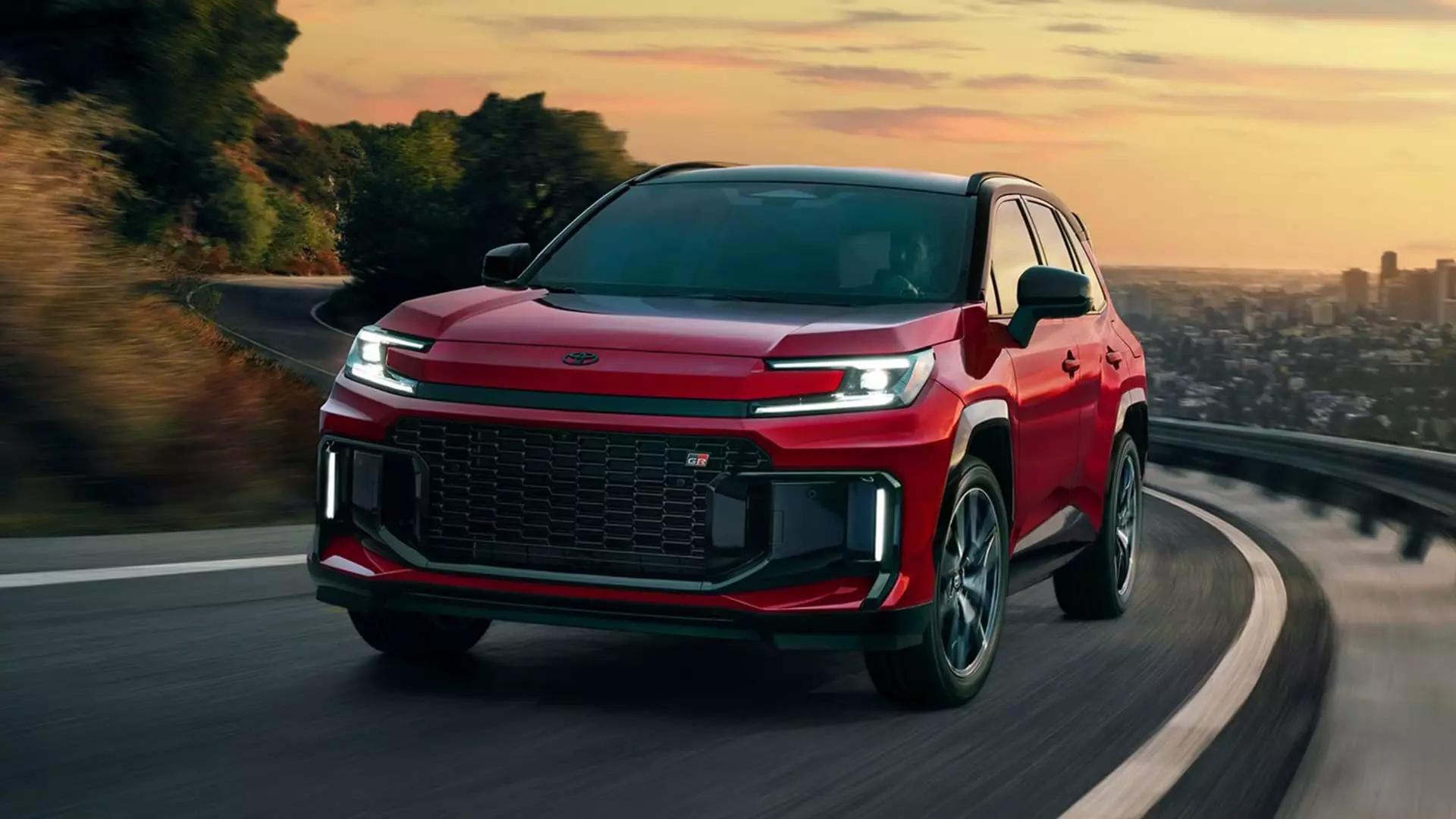In a game-changing move, Toyota has announced that the bestselling SUV in America, the RAV4, will transition into an all-hybrid model lineup for 2026. This shift aligns with broader industry trends where manufacturers are adapting to increasingly stringent fuel economy standards and the evolving preferences of environmentally conscious consumers. With hybrid technology at the forefront, Toyota seems poised not just to maintain its market dominance but to redefine the very notion of how we perceive hybrid vehicles.
The pioneering spirit encapsulated by this development cannot be overstated. After years of loyal service as a traditional SUV that also embraced hybridization, the new RAV4 exclusively adopting hybrid technology reflects an astute understanding of market dynamics. The automotive sector is in the throes of a significant evolution, and the embrace of hybrid technology places Toyota at the vanguard.
Consumer Demand Dictates Change
David Christ, the head of Toyota’s North American brand, emphasized that the decision to offer the RAV4 exclusively as a hybrid was driven by consumer demand, which is telling. The rising sales figures for hybrid models, notably a remarkable 29.3% increase in hybrid RAV4s last year, underline a pivotal shift in consumer sentiment. When the consumer “votes” with their wallets in favor of hybrids, it signals a broader willingness to accept hybrid vehicles as mainstream, rather than merely transitional technologies leading to full electric adoption.
It’s also worth noting that while full battery electric vehicles (BEVs) are gaining traction, the hybrid model serves as a practical bridge. It allows consumers to reap some benefits of electrification—such as fuel efficiency and lower emissions—while still retaining the convenience of gasoline power when necessary. The hybrid RAV4 provides flexibility that purely electric models often lack in regions with underdeveloped charging infrastructure.
The Hybrid Advantage in Performance
From a performance perspective, hybrid systems have made significant strides. The combination of a 2.5-liter four-cylinder engine with hybrid technology can yield surprising power and responsiveness, catering to drivers who previously may have dismissed hybrids as underwhelming. In this way, Toyota is killing two birds with one stone: it addresses environmental concerns while also enhancing the driving experience.
In a market increasingly occupied by trucks and larger vehicles, this performance edge can attract a diverse customer base. The RAV4’s new configuration will likely appeal to both families looking for an eco-friendly SUV and performance enthusiasts interested in its nimble agility and superior fuel economy. It’s a strategic move to broaden appeal, especially as consumer preferences continue to shift.
Adapting to Regulatory Pressures
In the face of stringent fuel economy regulations, the decision to exclusively offer a hybrid RAV4 comes at the right time. Automakers globally are grappling with the requirement to enhance efficiency in their fleets. By championing hybrid technology, Toyota not only navigates regulatory landscapes more adeptly but also positions itself as a responsible corporate citizen in the eyes of policymakers and customers alike.
This is particularly relevant in jurisdictions where incentives for hybrid and electric vehicles are more prominent compared to traditional gas engines. As these regulations tighten, Toyota’s strategic pivot allows them to remain compliant while also paving the way for future innovations in electrified vehicle technologies.
Building on Existing Success
The hybrid RAV4’s anticipated launch is set against a backdrop of already robust sales figures. With the RAV4 recorded as the best-selling non-pickup nameplate in the U.S., and a staggering 44% of those sales attributed to hybrids, the vehicle is a proven marketplace favorite. This built-in consumer loyalty provides a solid foundation from which to launch an exclusively hybrid lineup.
As a testament to Toyota’s historical expertise in hybrid technologies—perhaps rooted in the success of the Prius—this decision isn’t just a lucky gamble; it’s an informed evolution based on data and consumer behavior. Transitioning a popular model like the RAV4 to an all-hybrid platform not only cements Toyota’s reputation as a leader in the hybrid realm but also reflects an understanding of consumer readiness for change.
Confronting Market Challenges
Still, potential challenges loom large. The automotive landscape is peppered with uncertainty, especially considering Donald Trump’s ongoing tariffs which pose a threat to car imports. The fact that a significant proportion of Toyota’s RAV4 sales stem from units manufactured in Canada raises questions about future pricing and availability. However, executive statements suggest a proactive approach from Toyota to scale production locally in the U.S., which might ease some of these tensions over time.
Moreover, the resilience of Toyota in the face of industry-specific challenges further distinguishes it from competitors who may falter under similar pressures. As the hybrid RAV4 takes center stage, Toyota proves that innovation coupled with consumer responsiveness remains key to long-term success.

